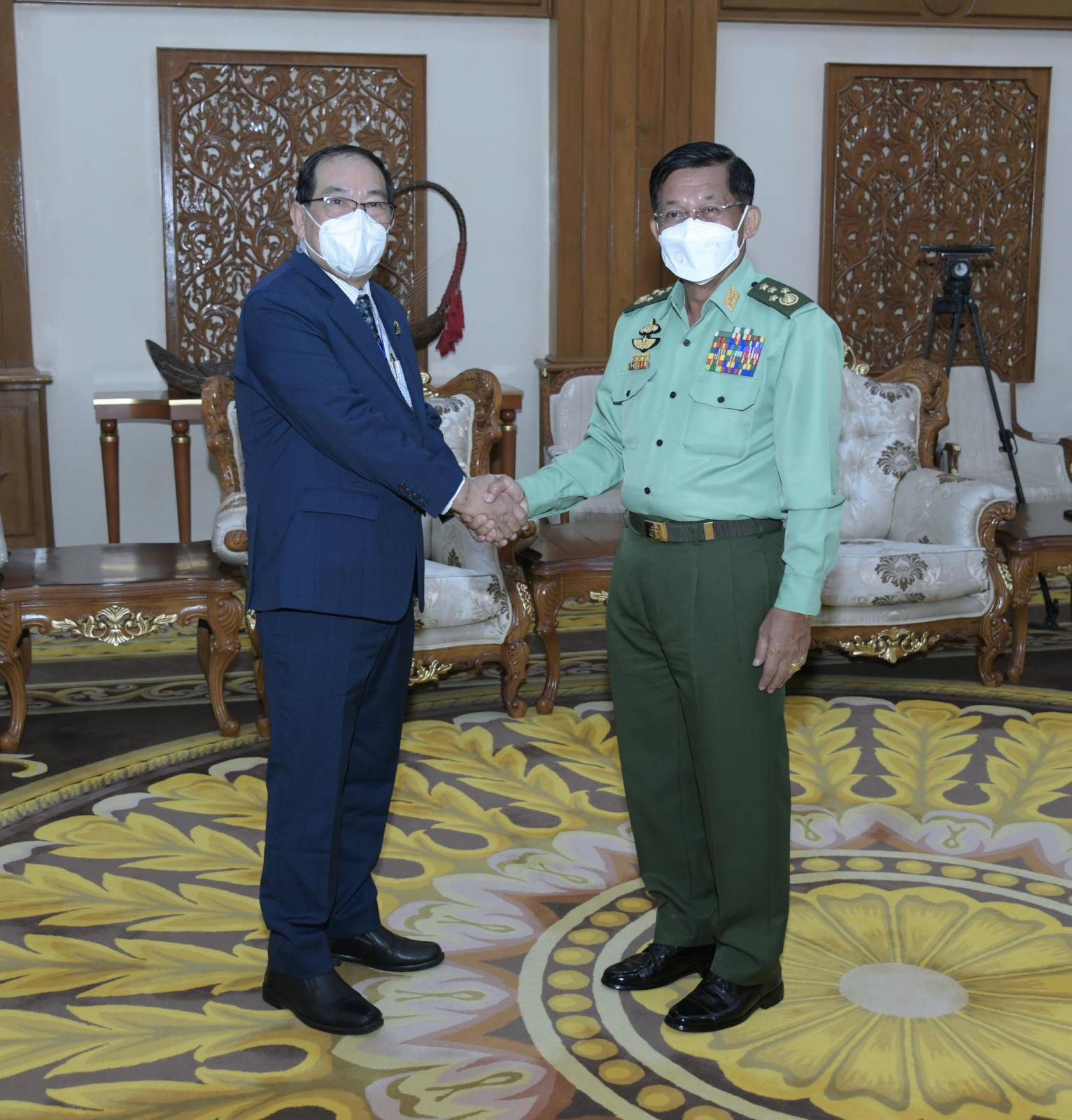CNI News
30 August 2022
Chairman Gen. Yawd Serk of the Shan State Restoration Council and Chairman Snr Gen. Min Aung Hlaing of the State Administration Council held discussions over an end to armed conflicts and violence.
The talks were held at the parlour of the Bayint Naung Yeitha in Nay Pyi Taw in the morning of 29th August.
The SAC chairman said that he would continue to implement the peace process based on the 2008 Constitution and the Nationwide Ceasefire Agreement.
RCSS Chairman Yawk Serk exchanged his views on building a union based on democracy and federalism, regional development, implementation of the federal system, resolving political issues through political means, promotion of socioeconomic lives of the people, ending armed conflicts and violence and future tasks.
Gen. Yawd Serk
The SAC chairman pointed out that many countries exercise democracy and federalism across the world but it is necessary to adopt democracy and federalism that are in line with the gepgraphical conditions, national characteristics and culture of the country. He also explained that as human resources instilled with knowledge and technologies are essential for implementing genuine and disciplined democracy and national development can be achieved speedily, measures are being taken to promote the education of the country.
The RCSS delegation will hold further negotiations with the peace negotiation team and the national solidarity and peace negotiation committee comprising member of the SAC.
The RCSS chairman arrived in Nay Pyi Taw on 29th August to join the second round of peace talks invited by the SAC and the first round of the talks were held on 20th May.
The RCSS/SSA is an ethnic Shan armed organization, which is active in northern and southern Shan state, and a signatory to the Nationwide Ceasefire Agreement. Tensions over terroritial control between the RCSS on the one hand and the Shan State Progressive Party/Shan State Army and the Ta’aung National Liberation Army on the other hand have escalated.
Armed conflicts have broken out between the Tatmadaw and ethnic armed organizations and the People’s Defence Forces, which came into existence after the Spring Revolution, in Karen State, Kayah State, Chin State, Rakhine State, Sagaing Region and Magway Region.
Due to such to the armed conflicts, houses were torched and civilians were arrested and killed on suspicion of supporting the armed organizations.




